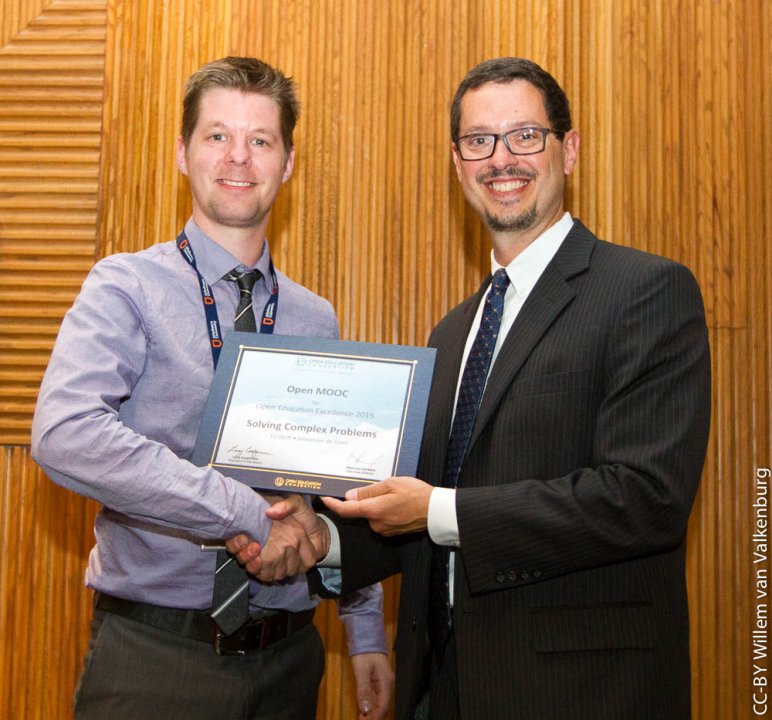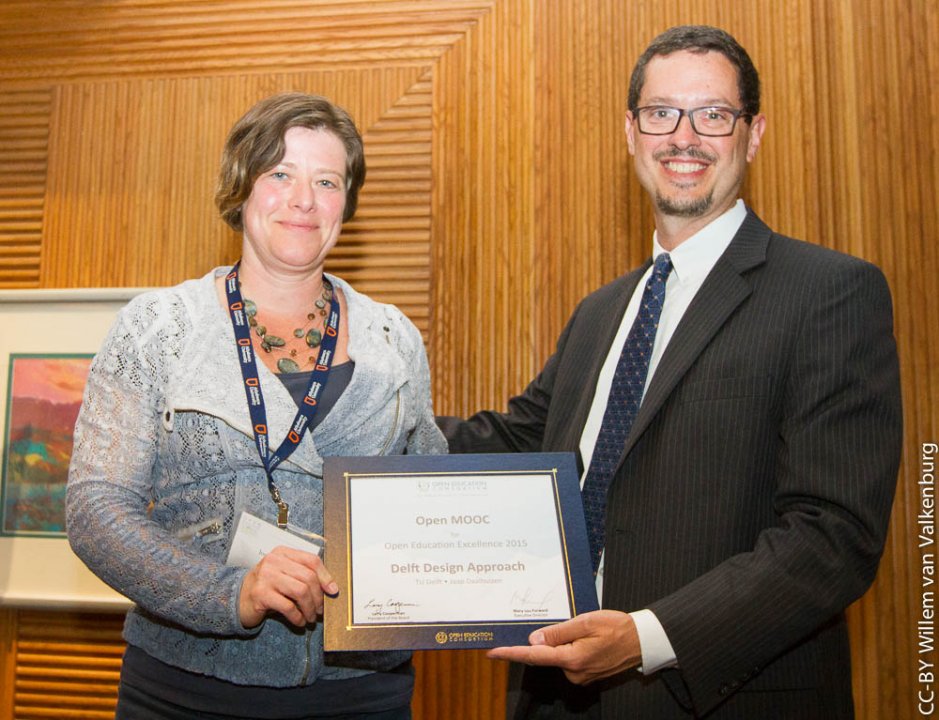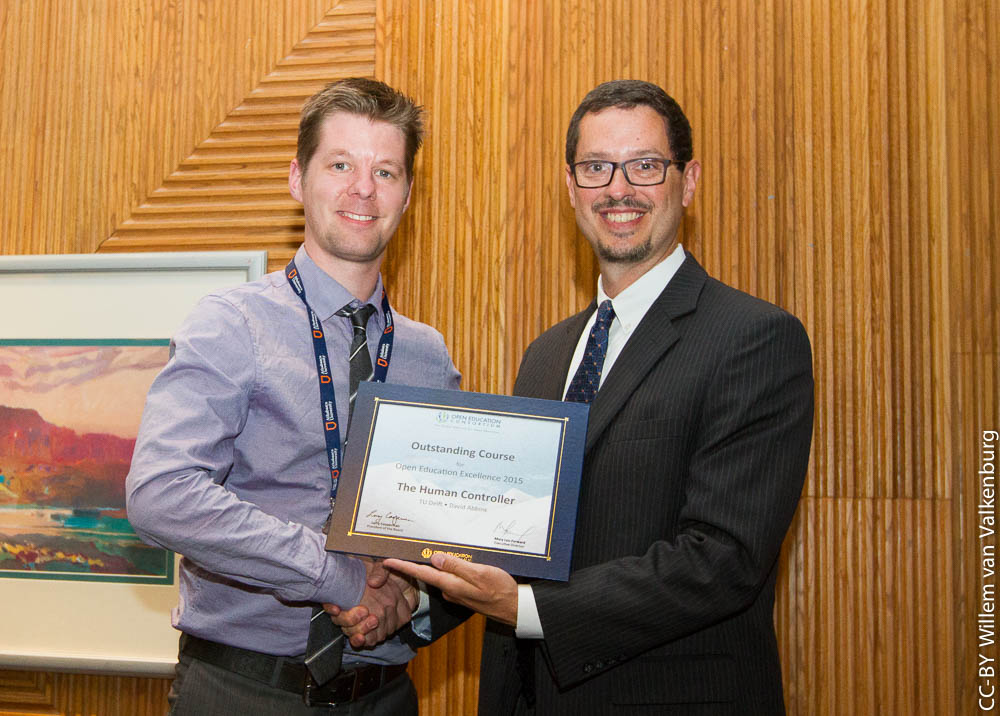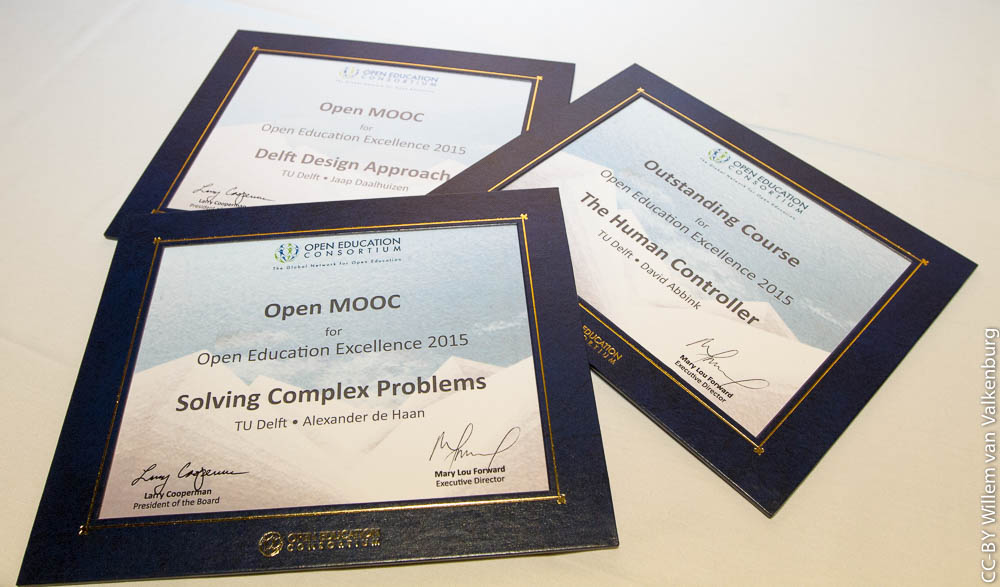Open Education Awards for TU Delft
Yesterday we received three awards at the yearly Open Education Award Ceremony. With these three awards our total comes to 10 awards in the last 4 years. It always is great honour to receive external recognition for the activities of our professors and support staff. It strengthen our mission for open education at TU Delft.
OpenMOOCs

Solving Complex Problems, by Alexander de Haan, is about Complex Multi Actor Systems, ‘spaghetti situations’ in which everything appears to be interlinked and many factors influence each other. Consider, for example, a situation in which new energy technology is introduced into an existing energy market. In such situations, people often talk about solutions, but nobody is exactly sure what the question is, or the best solution. Quantitative and qualitative models can help people understand such complex issues. Course participants will acquire practical tools and methods with which to structure and analyse complex problems.

Delft Design Approach, by Jaap Daalhuizen, has also received an Award of Excellence in the ‘Open MOOC’ category. The Delft Design Approach is a structured approach that helps designers cope with complex design projects – from the formulation of a strategic vision and mapping users and their contexts to developing and selecting meaningful designs for products and services. TU Delft hopes that this MOOC will introduce participants to its own unique approach to design, using several models and design methods, and drawing upon the knowledge and experience of experts from both education and practice. The online course allows participants to compare their results with those of students studying on campus at Delft and designers from the profession.
OpenCourseWare

The Human Controller, by David Abbink, is a course in the Mechanical Engineering Master’s degree programme. The course material (video lectures, exercises, articles, exam questions, etc.) is freely available as OpenCourseWare (OCW) on the internet. The Open Education Consortium has awarded the course as an ‘Outstanding (OCW) Course’.
The course studies man’s abilities and limits with regard to controlling machines. Various human sensors are explained, and participants learn how muscles work and how movement is coordinated. Man’s ability to control is explained within the context of control technology – a tricky subject that is made somewhat easier by considering examples from the practical situation. Two of the course assignments involve students doing their own experiments to demonstrate that the theory also applies to them. In one of these projects, the students download software that requires them to follow a moving dot with their mouse. This game allows the students to experience just how difficult it can be to control different types of systems, and teaches them how to measure their own control behaviour and construct mathematical models.
No feedback yet
Form is loading...
